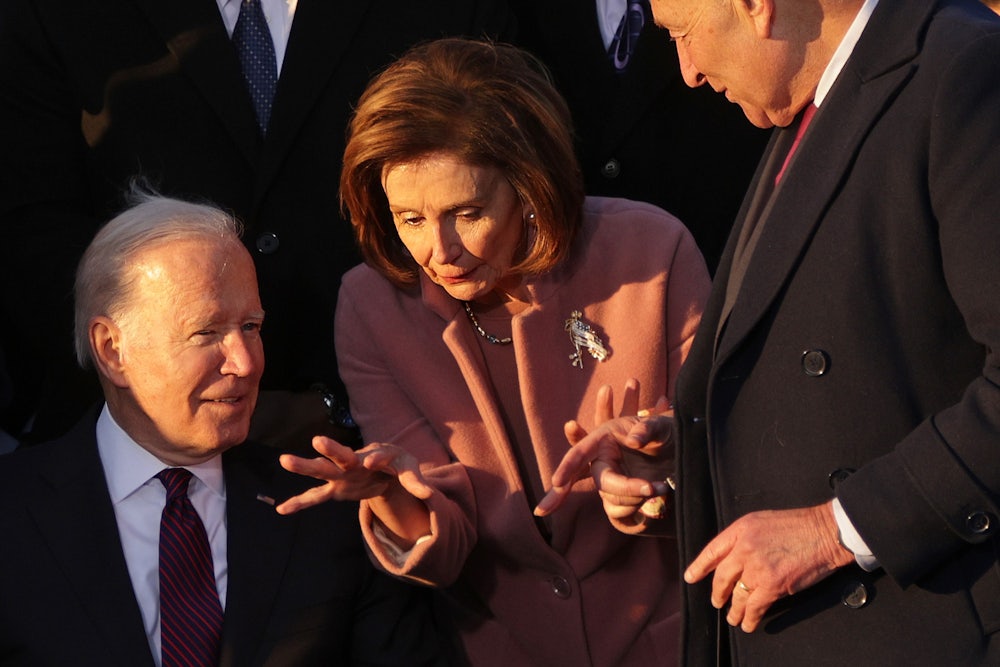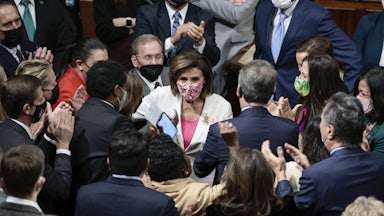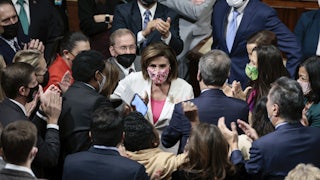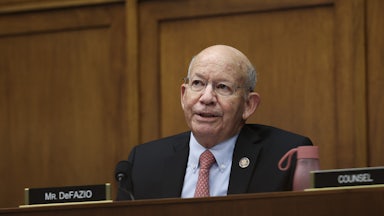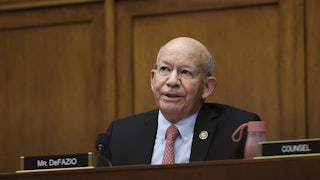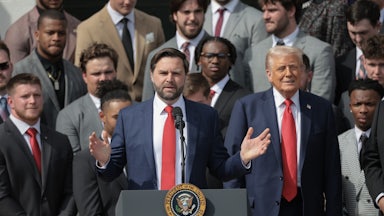Last week, the White House admitted that the Build Back Better Act—Joe Biden’s signature legislative agenda—is not going to pass this year. On Sunday, Senator Joe Manchin announced that he will not vote for the bill. All signs, at this point, suggest that the bill is dead. And given the cuts it’s already endured at the hands of a few centrist Democrats who helped lob off more than $4 trillion, whatever might eventually pass will likely be even smaller than the meagre $1.7 trillion bill that got through the House in November.
This is obviously dispiriting news from a climate perspective: It means that BBB’s roughly $555 billion in climate spending may never materialize. But the fate of climate policy is also linked to something else that punting BBB off indefinitely makes more difficult: Democrats winning elections. Every path toward getting comprehensive climate policy in the United States involves sustained Democratic majorities. So it would be nice to see the party trying a little harder to get them.
Prospects for Democrats in 2022 and 2024 are looking increasingly bleak. A new YouGov/Economist Poll shows that 50 percent of voters under 30 disapprove of Biden’s performance so far, while just 29 percent approve. Those same people account for 34 percent of all student loan debt, which the Biden administration intends to make them start repaying in February. The Child Tax Credit is unlikely to get extended. The Federal Reserve has signaled it could move to raise interest rates three times next year to deal with rising inflation, blunt-force changes that will disproportionately hit Black and brown people.
This all, of course, comes as the omicron variant is spreading rapidly, promising what Biden has called a winter of “severe illness and death” for unvaccinated Americans. Those include children under five, who still can’t get the vaccine. White House Press Secretary Jen Psaki scoffed at the idea of giving every American at-home tests, despite the fact that that is precisely what other countries—and Washington, D.C.—are currently doing. And the administration isn’t doing much, either, to lift intellectual property protection on vaccines so they can be produced more widely, preventing new variants from emerging in the large parts of the world that still lack widespread access to vaccines.
While it’s allegedly the White House’s next big priority, voting rights legislation, which could pass with a simple majority, doesn’t seem poised to move either. True to the spirit of imperial decline, the only things that Republicans and Democrats can seem to agree on is passing ever-larger Pentagon budgets.
People can’t eat battleships, and fighter jets won’t keep anyone from catching the omicron variant. So what reason have Democrats given for anyone to vote for them that anyone will remember by the midterms? The White House is letting a small handful of centrist zealots lead them into the abyss.
That’s not to say there aren’t real structural barriers to getting things done, of course: Getting Joe Manchin’s and Kyrsten Sinema’s votes remains the main barrier to getting legislation over the finish line. But playing real hardball would have looked a bit different. Manchin’s prestigious chairmanship of the Energy and Natural Resources Committee has never been seriously questioned, despite the fact that he’ll almost certainly lose his seat when his term finally ends in 2025 and might as well be considered a Republican at this point. It’s not even clear whether anyone’s attempted to bribe him with a Joseph Manchin III Highway or Football Stadium. For its midterm strategy, the Democratic Congressional Campaign Committee seems to be settling on blanketing airwaves with the same tired anti-Trump messaging that helped lose the party the Virginia governor’s mansion a few weeks back, a choice that’s angered even tepid centrists who’ve seen the same strategy fail before.
There are plenty of good, popular things that Biden could do that he doesn’t need even 51 Senate votes for, like moving toward the de facto legalization of marijuana or canceling student debt. He’s been chilly on both. If the administration and Democratic leadership aren’t prepared to go to bat for the Build Back Better Act, reinstate the crude oil export ban, stop selling leases for oil and gas companies to drill on public lands, or tighten rules on banks’ ability to finance fossil fuels—to name just a few of the emissions-reductions measures they could put in place tomorrow—the least they could do for the climate is to try to win elections by having something to run on.
